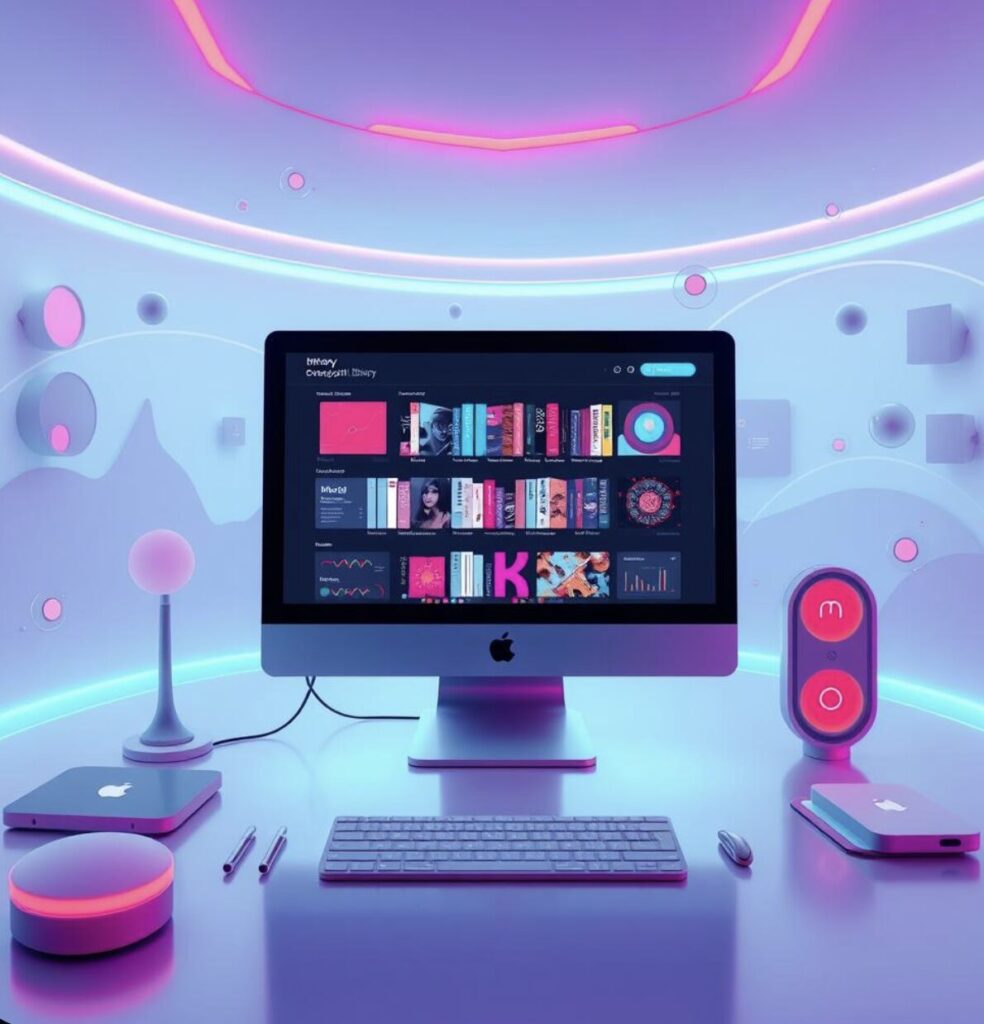Design systems have become the backbone of modern digital products. From startups to global enterprises, companies now recognize the importance of design consistency, scalability, and user-centric experiences. At the heart of this transformation lies the design system roadmap—a strategic blueprint that guides organizations in building and evolving cohesive design systems.
With Wandr design services, businesses gain more than design execution. They get a partner that helps map the vision, define milestones, and align stakeholders to build systems that grow with their products. Let’s dive into how roadmaps work, the latest UX trends shaping them, and why partnering with Wandr can accelerate success.

Why Design Systems Matter Today
The rise of digital-first companies
In a world where customers interact with brands across apps, websites, and devices, consistency is no longer optional—it’s essential. Design systems ensure that a button, font, or icon looks and feels the same across all platforms.
Challenges of inconsistent design
Without a design system, companies face fragmented user experiences, duplicate work, and slowed development cycles. A roadmap prevents design debt from piling up.
Benefits of adopting a design system
- Faster product development
- Stronger brand identity
- Improved accessibility and inclusivity
- Scalability for future growth
Understanding a Design System Roadmap
What is a design system roadmap?
A roadmap is a strategic guide that outlines how your organization will design, implement, and scale a design system over time.
Key differences between roadmap and project plan
- Roadmap = big-picture strategy (“what” and “why”)
- Project plan = tactical execution (“how” and “when”)
Why every organization needs one
A roadmap keeps teams aligned, reduces confusion, and ensures long-term ROI from design investments.
Current UX and Design Trends Influencing Roadmaps
Accessibility as a priority
Inclusive design is no longer a trend—it’s a must-have. Accessibility-first design ensures that everyone can use your product.
AI-driven personalization
AI tools are enabling adaptive design systems that evolve based on user behaviors.
Scalable design for multi-platform products
From mobile-first to cross-device experiences, scalability is a top priority.
Sustainability in design
Minimalist, energy-efficient design choices are shaping eco-conscious digital products.
How Wandr Helps Build a Design System Roadmap
Assessing current design maturity
Wandr begins by evaluating your current design ecosystem—what works, what doesn’t, and what needs scaling.
Defining clear goals and vision
Together with your team, Wandr sets measurable goals tied to business outcomes, not just visuals.
Creating milestones and actionable steps
Each milestone is mapped to deliverables—like component libraries, brand guidelines, or developer handoff tools.
Cross-functional alignment and collaboration
Wandr bridges the gap between design, product, and engineering teams, ensuring everyone moves in the same direction.
The Step-by-Step Guide to Building a Roadmap
Step 1: Assessing the current state
Identify strengths, weaknesses, and areas of improvement.
Step 2: Establishing a vision
Define where you want your design system to be in 6–12 months.
Step 3: Identifying milestones
Break big goals into achievable checkpoints.
Step 4: Mapping actionable steps
Create detailed tasks for each milestone.
Step 5: Communicating effectively
Use storytelling and visuals to bring stakeholders onboard.
Step 6: Maintaining the roadmap
Review quarterly, update as technology and business needs evolve.
The Role of Wandr Design Services
Custom UI component libraries
Wandr helps design reusable, scalable UI libraries tailored to your brand.
Scalable product design systems
Their design systems grow with your business, reducing technical and design debt.
Strategic consulting for startups and enterprises
From early-stage startups to Fortune 500s, Wandr adapts strategies based on company maturity.
Continuous improvement through testing and iteration
Design systems are never static. Wandr ensures they evolve with user needs.
How Design System Roadmaps Improve User Experience
- Consistency across products → seamless experiences
- Faster development cycles → reduced time to market
- Improved accessibility → inclusive design for all users
- Long-term scalability → systems that adapt as products expand
Case for Startups vs. Enterprises
Startups: Building lean but scalable systems
Startups benefit from lightweight systems that grow as products evolve.
Enterprises: Standardization at scale
Large companies need strict consistency across global teams and platforms.
How Wandr adapts to both
Wandr tailors roadmaps based on resources, team size, and long-term goals.
Communicating the Roadmap
Storytelling for stakeholders
Roadmaps become engaging when told as a story of progress and impact.
Visualizing timelines and dependencies
Charts and timelines make complex initiatives simple.
Engaging feedback loops
Two-way communication builds ownership across teams.
Maintaining and Updating the Roadmap
- Regular reviews → quarterly check-ins keep systems relevant
- Tracking progress → metrics highlight wins and bottlenecks
- Adapting to change → AI, new tools, and user feedback inform updates
- Transparent communication → keeps stakeholders aligned
Future of Design Systems
- AI-powered design workflows → automated prototyping and testing
- Global collaboration tools → Figma and similar platforms enabling real-time design
- Automation in design and testing → fewer repetitive tasks, faster iteration
Why Choose Wandr for Your Design System
- Proven track record in UX/UI for global brands
- Results-driven strategies backed by case studies
- Flexible partnership models for different industries
- Focus on long-term scalability and innovation
Common Mistakes in Building Design System Roadmaps
- Overcomplicating components
- Ignoring scalability
- Lack of alignment with stakeholders
- Poor communication practices
Actionable Takeaways
- Align your design system with business goals
- Keep scalability at the core of your roadmap
- Partner with experts like Wandr to avoid costly mistakes
Conclusion
A design system roadmap is more than a document—it’s a growth strategy. It ensures consistency, accelerates development, and future-proofs digital products. With Wandr design services, businesses gain a partner that not only builds the system but also helps it evolve with industry trends. In today’s fast-paced digital landscape, roadmaps are non-negotiable. If your company wants to stay ahead, investing in one now will pay off for years to come.

FAQs
1. What is a design system roadmap?
It’s a strategic guide that outlines how an organization will implement and scale a design system over time.
2. How does Wandr help companies with UX design?
Wandr provides design services that include UI libraries, scalable systems, and strategic consulting tailored to business needs.
3. Why is scalability important in design systems?
Scalability ensures your design system can adapt as your product grows, saving time and resources.
4. How often should you update your design system roadmap?
At least quarterly, or whenever significant business or technology shifts occur.
5. What trends will shape design systems in the next 5 years?
AI-powered workflows, accessibility-first design, sustainability, and global collaboration will dominate.







